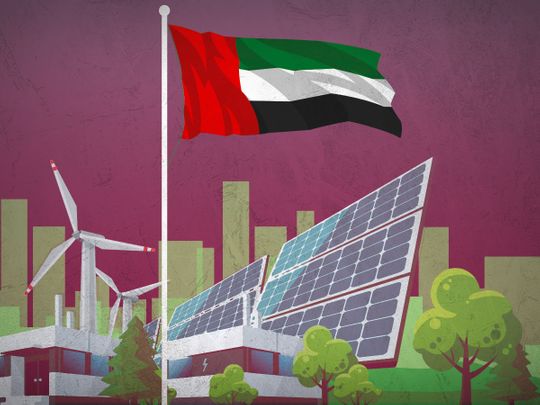
The United Arab Emirates announced last week that the upcoming COP28 climate conference will be held at Expo City Dubai in November 2023 to find solutions to global threats posed by climate change. The UAE will be the second Arab country to receive the UN summit on climate change after Egypt, which will host COP27 in November this year.
Climate change is undoubtedly the most critical global challenge facing our planet today. Scientific evidence has proved with certainty that global warming is a real and present danger and that unless pledges to reduce greenhouse gas emissions are fulfilled, all living beings will face catastrophe within a few decades.
The symbolism behind choosing two Middle Eastern countries as venues for such an important event cannot be missed.
Why Middle East is vulnerable to climate change
A study by the Brookings Institute published last year stated that the Middle East and North Africa (MENA) is among the most vulnerable places in the world to climate change. It pointed to UN conclusions about the devastating toll that climate change will have on the region’s water supplies and food production systems and its potential to create breeding grounds for violent extremism. The UN further predicted that no country would be spared, including Gulf nations facing depleted freshwater resources within the next 50 years. It cited the case of conflict-ridden Iraq, where average temperatures are soaring at a rate two-to-seven times faster than the global average.
Geopolitical crises in our region have exacerbated the problem as well. Civil wars, terrorism, and attempts to control precious sources of fresh water, as in the case of Ethiopia’s Grand Renaissance Dam, have added to the climate change challenges. The flow of Iraq’s two main rivers, the Euphrates and the Tigris, is being choked by Turkey and Iran, both of which have built dams bringing down the water level in the two rivers by 70 per cent.
As average rainfall hits historic low records in the Levant, the UN warns that more than 12 million people in Iraq and Syria are losing access to water, food, and electricity because of rising temperatures and low rainfall. Desertification is sweeping across the region in Iraq, Syria, Jordan, and Iran as well, the UN said.
National Climate Change Plan is the UAE’s comprehensive framework to address the causes and impacts of climate change, transition into a climate-resilient green economy, and achieve a better quality of life.
To avert disaster, countries must work together to fulfill the goal of the Paris Agreement, an international treaty on climate change. That agreement seeks to limit global warming, preferably to 1.5 degrees Celsius, compared to pre-industrial levels. According to the World Meteorological Organisation, achieving this goal requires global greenhouse gas emissions to peak before 2025 at the latest and be reduced by 43 per cent by 2030; at the same time, methane would also need to be reduced by about a third.
While many countries in the industrialised world have taken action, namely the EU states, by setting limits and adopting legislation, others, such as China and the United States, have been moving slowly. In the case of the United States, which is responsible for 28 per cent of carbon emissions or a quarter of world greenhouse gases, politics has got in the way, with many in the leadership of the Republican Party opposing legislations that would limit the use of fossil fuel and impose limits on emissions.
While the coronavirus pandemic, resulting in extended lockdowns and sluggish economic activity, has improved air quality around the globe, proving that the greenhouse effect can be controlled and emissions can be brought down, the war in Ukraine has had a negative impact.
The economic war between the West and Russia has led to interruptions in Russian gas supplies to many European countries. With no immediate alternative, the EU is facing an unprecedented energy crisis. Oil prices have rocketed for now, but western sanctions on Russia mean that with no access to natural and liquefied gas, many industrialised countries, including Germany, the biggest European economy, are reopening coal mines to make up for lost energy. However, renewables alone cannot compensate for lost Russian oil and gas.
Aside from the environmental damage caused by the war, which is likely to increase carbon emissions, the energy crisis is now the biggest challenge facing the United States and Europe. Climate change is no longer the priority, which means targets set under the Paris agreement are in jeopardy.
The UAE has a lot to offer in terms of setting goals and adopting means to achieve them. It was the first regional country to adopt the National Climate Change Plan — 2017–2050. According to the government, the plan is the UAE’s comprehensive framework to address the causes and impacts of climate change, transition into a climate-resilient green economy, and achieve a better quality of life. The UAE’s Net-Zero by 2050 strategic initiative is a national drive to achieve net-zero emissions by 2050, making the country the first in the MENA to do so. The UAE is also the first Arab country to adopt the Green Agenda 2015-2030, which consists of five strategic objectives: creating a sustainable environment and valued natural resources, clean energy and climate action, and sustainable use of resources.
The UAE’s track record is exemplary for fulfilling goals, and its experience should be made into a case study for all nations in the developing world to follow. This is why the Dubai COP28 climate conference will mark a milestone as the region grapples with the devastating effects of climate change.
Osama Al Sharif is a journalist and political commentator based in Amman.




